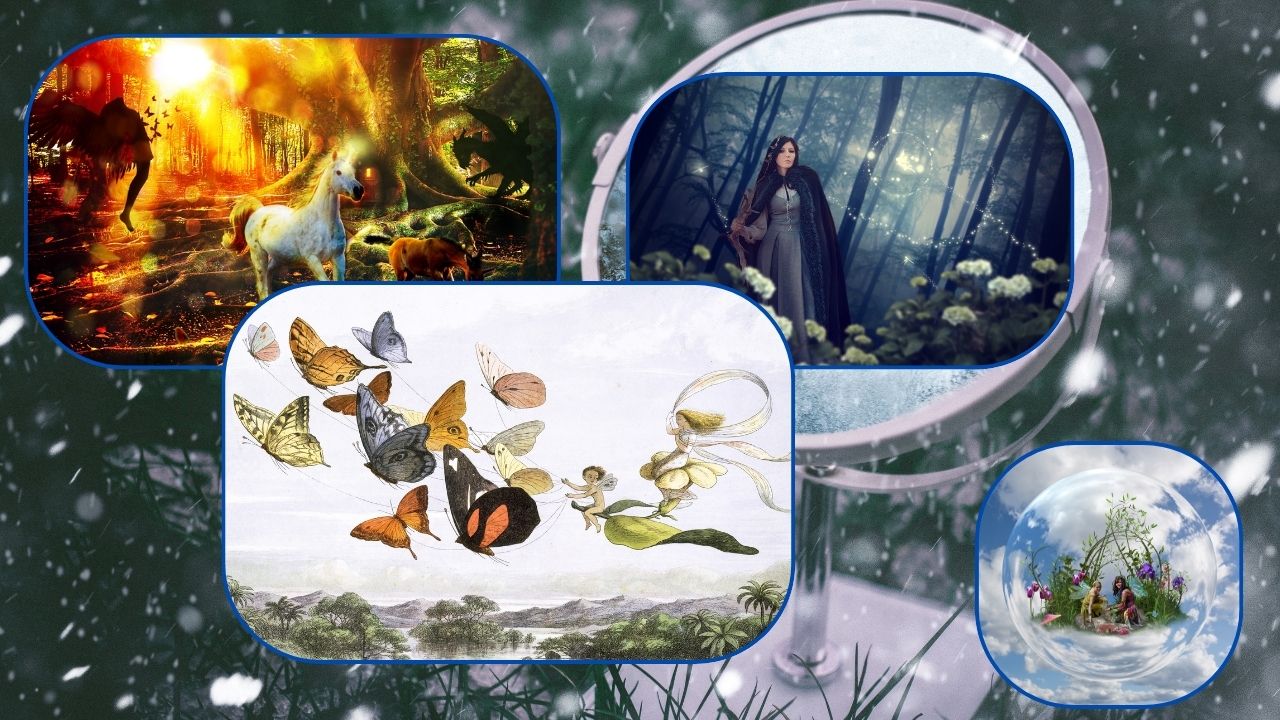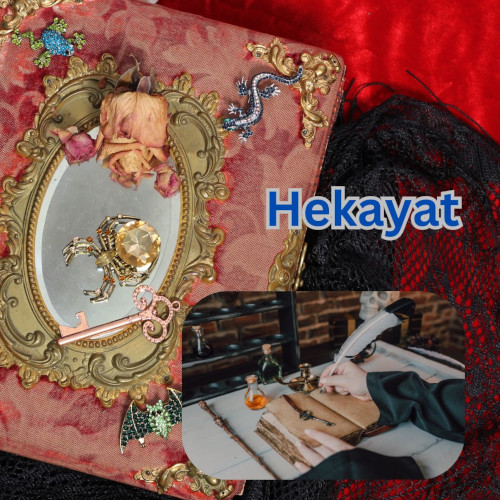Once Upon a Time
There was no one. A man had three daughters. Their mother was no longer alive, and there was no one to take care of the household and chores. After years, the man remarried. From the beginning, the new bride was hostile toward the daughters. She ordered a well to be dug at the base of a mulberry tree. The well was dug, and its opening covered. One day, she suggested to her husband, "It's mulberry season; let’s go shake some mulberries with the girls."
A while later, they were under the mulberry tree. She sent her husband up the tree to shake the branches. As the father shook the branches, the three sisters collected the berries one by one. When they unknowingly stepped onto the covered well opening, it gave way beneath them, and they fell into the well with their baskets.
The father climbed down from the tree, tearing at his hair and crying out, "Oh no! My daughters fell into the well and are gone. Someone help me!" The stepmother coldly replied, "Don’t wail like a woman. It was their fate and destiny. There’s nothing we can do. Don’t grieve; I am here for you." The man, heartbroken and with tears in his eyes, returned home with his wife.
Now let’s hear about the fate of the sisters. They survived the fall into the well, landing safely with their mulberry baskets. For two days, they ate the mulberries as their meals. When the berries ran out, they said to each other, “What should we do now?” After some thought, they decided to dig their way out by making a tunnel along the soft walls of the well. Taking turns, they clawed at the dirt with their hands until they reached a small opening. Through it, they saw a stable with a horse.
Instead of straw or barley, the horse's trough was filled with raisins. They grabbed handfuls and ate to satisfy their hunger. Every day, they watched the groom come to the stable, refill the trough with raisins, and leave. From every ten handfuls, the horse barely got one, while the sisters ate the rest.
This stable belonged to the king's castle, and the horse was the king's prized steed. The horse, deprived of enough raisins, grew weaker and thinner every day. One day, the king noticed the condition of his horse and scolded the groom, who fearfully replied, "I feed it its daily raisins without fail and take proper care of it."
The king angrily ordered, "Find out what’s happening to my horse!" The groom decided to stay in the stable day and night to observe. One morning, he saw three figures emerge from the tunnel into the stable and start eating the raisins. The groom shouted, and the guards rushed in, capturing the three sisters and throwing them into prison.
Hearing of this, the king became curious and wanted to know what these three women talked about in their cell. Late at night, with his special guard, he eavesdropped at the prison door.
The youngest sister said, "Who knows? Maybe I’ll be lucky enough to marry the king’s right-hand minister."
The middle sister said, "Perhaps I’ll marry the king’s left-hand minister."
The eldest sister boldly said, "If the king proposes to me, I’ll only accept on the condition that he carries my bath bundle to the bathhouse seven times."
At dawn, the three sisters were brought before the king. He asked them what they had been whispering about the previous night. The youngest repeated her words, and the king married her to his right-hand minister. The middle sister said the same, and she was married to his left-hand minister.
Finally, the eldest sister spoke fearlessly: "If the king wishes to marry me, he must carry my bath bundle to the bathhouse seven times." The king, feeling insulted, ordered her tied to a wild horse's tail and dragged across the land.
The horse dragged her from the city to the farmlands, where an old farmer was plowing his field. He saw the scene and intervened, cutting the horse’s tail. The injured sister faintly asked him for water. The farmer replied, "I’ve already had my bread and water, but I’ll bring you some from home." He left to fetch it, but in the meantime, the sister got up, guided the oxen, and began plowing the field herself.
On her third furrow, her plow struck a jar buried in the ground. Digging around it, she uncovered three jars of treasure. She quickly buried them again just as the farmer returned with water and bread. After eating and drinking, she told him about the jars of treasure. Together, they unearthed the jars at night and brought them home.
With the newfound wealth, the eldest sister built a palace so grand that it had no equal. When news of this reached the king, he sent three officials to investigate. After welcoming them with great hospitality, she gave each of them handfuls of gold coins and pearls. Impressed, the officials reported her wealth and generosity to the king.
The king, intrigued, disguised himself as a beggar and went to her palace. Pretending to be poor and desperate, he asked for help. Recognizing him immediately, the eldest sister said, "I will help you, but only if you carry my bath bundle to the bathhouse."
Thinking she didn’t recognize him, the king agreed. He carried the bundle to one bathhouse, but she insisted he had taken it to the wrong one and sent him to another. This continued until the king carried the bundle to seven different bathhouses.
Finally, she revealed her identity: "I am the same sister who, in prison, said you would have to carry my bath bundle seven times. As a king, you felt humiliated by my condition, but now you’ve done it. My condition is fulfilled."
The king, impressed by her wit and courage, returned to his palace. The next day, he proposed to her with great honor and respect. Their wedding was celebrated with festivities that lasted seven days and nights. The three sisters each found happiness in their lives, and they all lived prosperously ever after.
The narrator adds, "My old mother told me this story, and it stuck with me. I later recounted it to my grandchild. These tales are the joys of us old folk."



